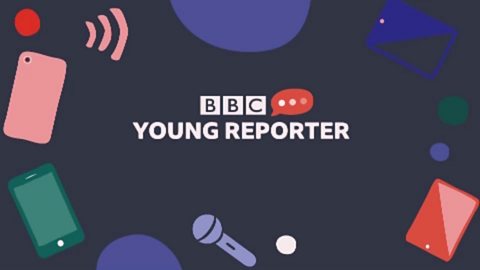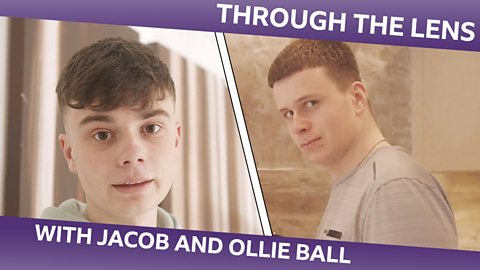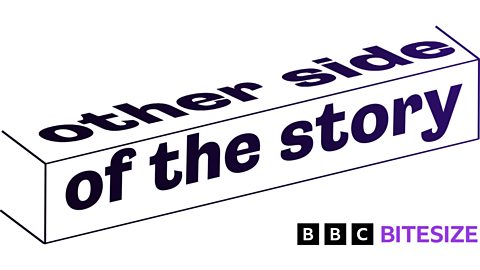Young people in the UK trust social media influencers more than politicians to tell them the truth about the news, according to a new survey for Â鶹ԼĹÄ Bitesize.
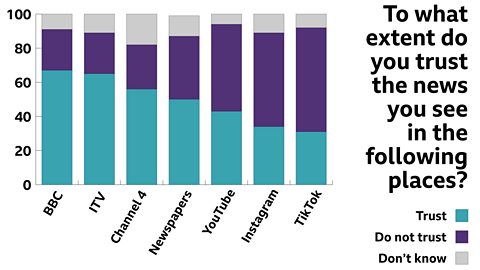
Almost half (47%) said they trusted social media platforms to give them truthful news while 67 per cent said they trusted the news they see on the Â鶹ԼĹÄ more than that on ITV, Channel 4, YouTube, Instagram or Tik Tok.
When asked who they’d believe most to tell them the truth about the news one per cent of 11-16 year olds chose politicians, while five per cent said influencers.

It comes as Â鶹ԼĹÄ Bitesize launches the Other Side Of The Story project to help 11-16 year olds make more sense of the news and information they see and share online every day.
Almost nine out of 10 young people (87%) said they understood what fake news was but less than half said they would search for evidence to back up their views and opinions. Sixty six per cent said they would check with their parents if they wanted to know whether a news story they’d seen or heard was correct.
Â鶹ԼĹÄ Director General Tim Davie said: “It’s vital young people have access to impartial and accurate information on the issues that matter to them and I’m pleased this latest research indicates the Â鶹ԼĹÄ is the most trusted news source for 11 to 16 year-olds.
“Our Other Side Of The Story campaign will give young people the tools to think critically about the information they consume and how to identify trusted outlets, whether it’s in print, broadcast or online.”
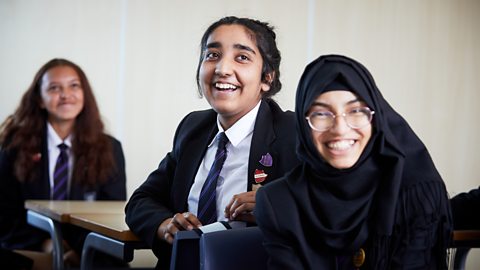
The Other Side Of The Story campaign will provide videos and quizzes, as well as classroom workshops, to help secondary school pupils improve their media literacy skills and give them the tools to understand how things like echo chambers, internet algorithms and unconscious bias, as well as fake news and misinformation can alter the way they see the world.
More than 2,000 young people aged 11-16 were surveyed across England, Scotland, Wales and Northern Ireland.
Of those who said they had shared fake news online 62 per cent said they later regretted it.
One in five said their opinions were more important than the facts and among those who get their news from social media around a third (30%) said they get it from Tik Tok.
However, less than a quarter think that presenters on TV represent them (20%) while 40% say they would be more likely to watch news on TV if the presenters were more like them.
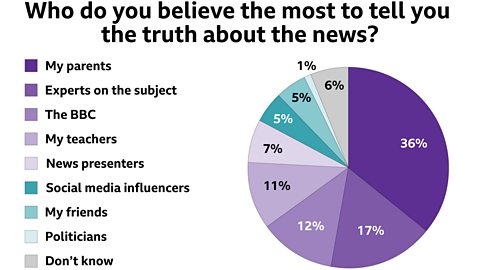
Helen Foulkes, Head of Â鶹ԼĹÄ Education, said: “The results show how confused a lot of young people are about where to go to get reliable information. They’re moving away from more traditional news sources but they’re not sure whether what they see and hear in other places can be trusted.
“By providing resources that help young people think more deeply about where news is coming from, whether it’s balanced or biased, fact or opinion or simply just made up, we’re hopeful we can arm them with the tools to feel much more confident about what they see and share in the future.”
As part of the Other Side Of the Story campaign Â鶹ԼĹÄ Bitesize will run a series of workshops in schools across the UK from September, with the videos and workshop plans available to all schools via the Â鶹ԼĹÄ Teach website later in the year.
To coincide with the launch of the new campaign, the national and regional winners of the annual Â鶹ԼĹÄ Young Reporter competition have been revealed, with more winners than ever before across all nations and regions in the UK.
The 40 winners will work with Â鶹ԼĹÄ journalists, producers and programme makers to prepare their story for broadcast across the Â鶹ԼĹÄ, including on The One Show, Â鶹ԼĹÄ Breakfast, Â鶹ԼĹÄ Three, Â鶹ԼĹÄ News and Â鶹ԼĹÄ Local Radio programmes, as well as online and on social media platforms in the Â鶹ԼĹÄ’s centenary year.
Newsround has selected 15 stories, specifically from 11-13 year olds, that will feature online throughout the year. Reports will range from the experience of being a young carer to being addicted to online gaming.

Up next
Watch more videos and take on quizzes from Other Side of the Story and around the Â鶹ԼĹÄ.
Â鶹ԼĹÄ Young Reporter
Encouraging young people aged 11-18 to share their stories and get their voices heard.
